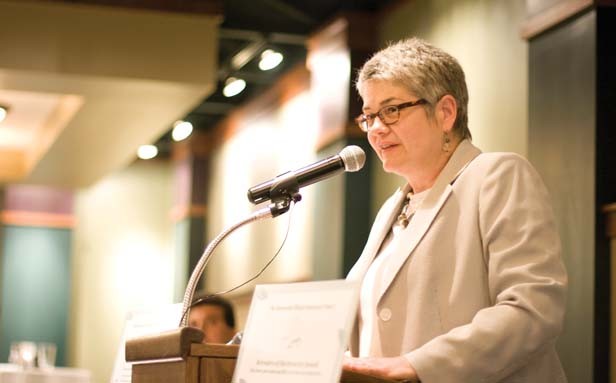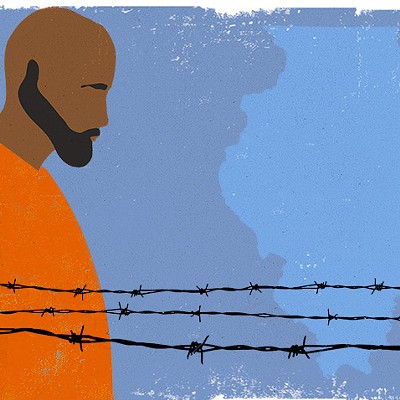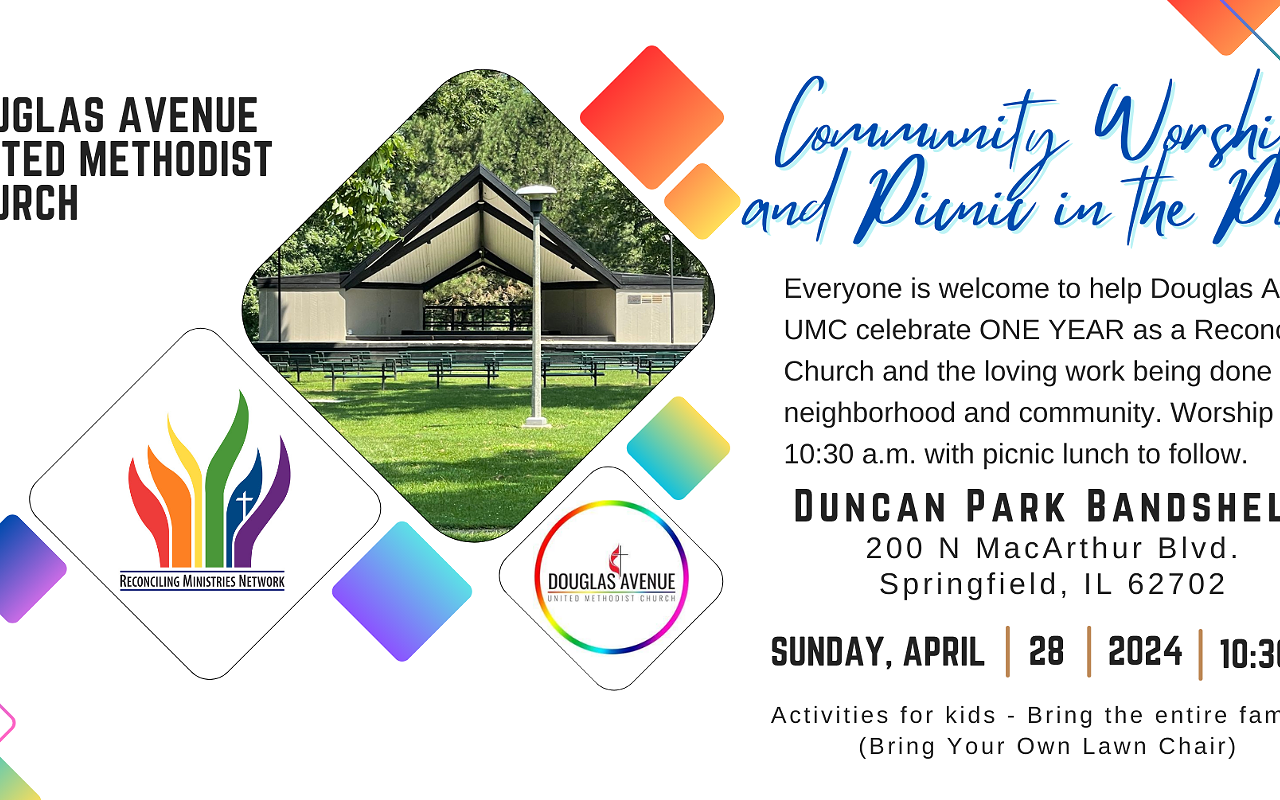It’s not every day that a serial killer helps a writer solve a crime, so when Diane Fanning, a Texas true-crime author, received a letter from convicted killer Tommy Lynn Sells admitting to a murder in Illinois, she knew she was on to something big.
Fanning convinced Sells to give more details about the1997 murder of 10-year-old Joel Kirkpatrick of Lawrenceville, Ill., and she included his confession in her 2007 book, Through the Window, which details Sells’ cross-country murder spree. The Downstate Illinois Innocence Project, based at the University of Illinois Springfield, later used the details gathered by Fanning to free Joel’s mother, Julie Rea Harper, who had been wrongly convicted of the murder in 2002.
On May 16, almost five years after her release from prison, Harper stood in front of a crowd of people and tightly hugged Fanning, who she calls her hero. Fanning was one of four people honored for contributing to the defense of the wrongly convicted at the Downstate Illinois Innocence Project’s 10th anniversary banquet. U.S. Sen. Dick Durbin and former Illinois State Police investigators Alva Busch and Michale Callahan also received the Innocence Project’s Defenders of the Innocent award.
Started in 2001 by Springfield private investigator Bill Clutter and former UIS professors Larry Golden and Nancy Ford, the Innocence Project has already freed three people from prison for crimes they didn’t commit. That’s a big accomplishment for a small group of volunteers without a lawyer among them, Clutter notes.
“There were times when I never thought I’d see my clients get out of prison,” he says. “To have three exonerees for a project this small is really an incredible feat. To see the continuing support of the community is really gratifying.”
The Innocence Project is one of several similar groups in Illinois and across the nation that work to free people they believe have been wrongly imprisoned. That work often brings the Innocence Project into contact with people who defy their own interests in the name of justice. Busch and Callahan, the ISP investigators, are two such people.
Alva Busch investigated crime scenes for ISP in East St. Louis, but in 2001, he was stripped of his peace officer status after testifying that wrongly-convicted prisoner Keith Harris was not involved in a 1979 armed robbery and attempted murder. His testimony put him at odds with the official ISP stance, and he was punished for it by having his gun, badge and other cop accoutrements taken away. His knowledge of the case helped the Innocence Project free Harris in 2002 after 22 years in prison.
Michale Callahan was assigned to oversee an ISP re-investigation into the 1986 murders of Dyke and Karen Rhoades in Paris, Ill., but Callahan soon began to discover problems with the case against ISP’s favored suspects, Herb Whitlock and Randy Steidl. His 2009 book, Too Politically Sensitive, documents those problems, as well as efforts by his superiors to shut down the investigation. His book and investigation became part of the Innocence Project’s effort to free Herb Whitlock, who spent more than 20 years in prison before his 2008 release.
“When I spoke up, the State of Illinois’ only defense was to attack my freedom of speech, to attack my First Amendment rights,” Callahan says. “But what they don’t know is that they cannot silence the egregious facts of this case or those that are wrongfully convicted.”
The Innocence Project also recognized Sen. Dick Durbin for helping secure a federal grant of $687,448, which allows the group to hire legal director John Hanlon, former assistant deputy defender for the capital trial assistance unit of the Illinois Appellate Defender’s Office. Hanlon will primarily analyze the significance of DNA evidence.
Though Durbin was unable to attend the banquet, he recorded a message to the Innocence Project.
“I commend you on more than a decade in fine work and service,” Durbin’s message said. “I look forward to working with you in the future to help ensure justice is there when you need it the most.”
Diane Fanning, the author who helped free Julie Rea Harper, says she is “honored, humbled and validated” to be a part of the project’s history.
“Being able to play even a small role in the exoneration of a wrongfully-convicted woman has been the highlight of my life,” she says.
Contact Patrick Yeagle at [email protected].
Defenders of the innocent
Innocence Project marks 10 years by honoring key allies

[
{
"name": "Air - MedRect Combo - Inline Content 1",
"component": "11490391",
"insertPoint": "3",
"requiredCountToDisplay": "1",
"parentWrapperClass": "fdn-ads-inline-content-block"
},{
"name": "Air - MedRect Combo - Inline Content 2",
"component": "11490392",
"insertPoint": "7",
"requiredCountToDisplay": "5",
"parentWrapperClass": "fdn-ads-inline-content-block"
},{
"name": "Air - MedRect Combo - Inline Content 3",
"component": "11490393",
"insertPoint": "12",
"requiredCountToDisplay": "9",
"parentWrapperClass": "fdn-ads-inline-content-block"
}
]
Illinois Times has provided readers with independent journalism for almost 50 years, from news and politics to arts and culture.
Your support will help cover the costs of editorial content published each week. Without local news organizations, we would be less informed about the issues that affect our community..
Got something to say?
Send a letter to the editor and we'll publish your feedback in print!




















